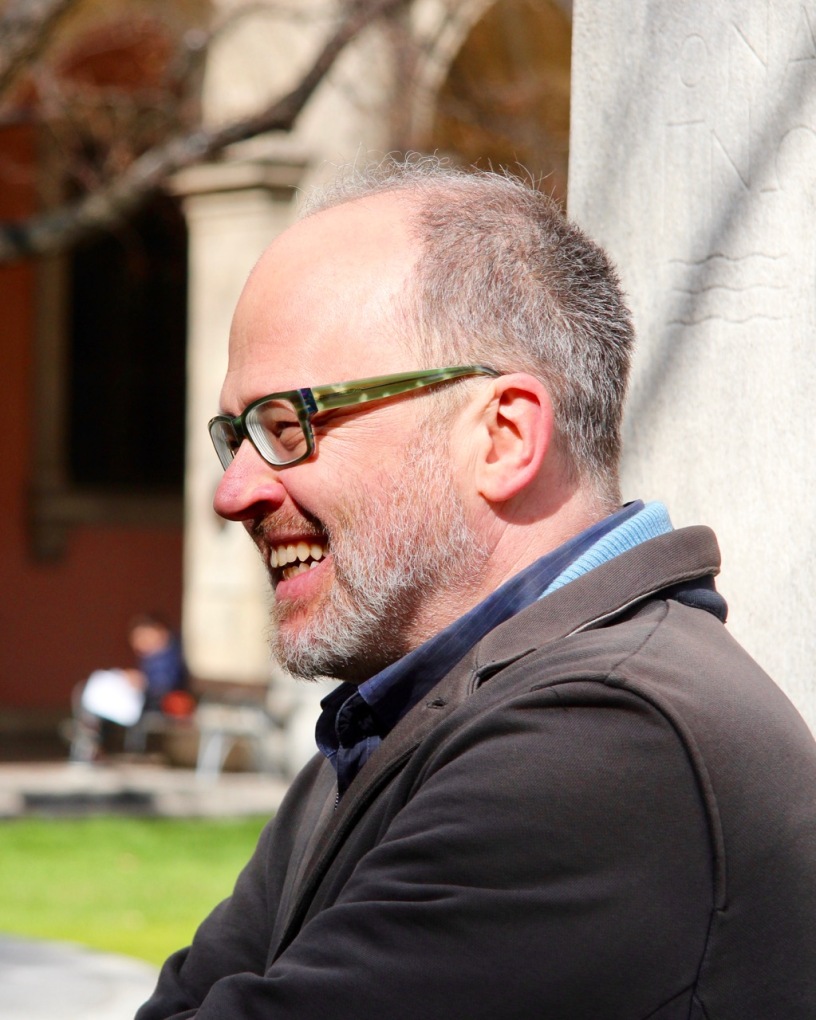Claus Tieber
@univie.ac.at
Lecturer, Department of Theater, Film and Media Studies
University of Vienna
RESEARCH, TEACHING, or OTHER INTERESTS
Arts and Humanities
Scopus Publications
Scopus Publications
Claus Tieber
Springer International Publishing
AbstractDiegetic music and musical performances did not start with the sound film in the late 1920s. Looking at musical moments in Austrian and German films, this chapter examines their sources in silent cinema. Two case studies, Seine Hoheit, der Eintänzer and Ein Walzertraum, provide evidence for two interrelated tendencies within musical numbers in silent cinema of the mid to late 1920s: abstraction and sexuality. Musical moments can lead to abstract images and the sublimation of sexuality gets more obvious during these moments. This chapter argues that these two tendencies are closely connected and that their potential to destabilise the form and style of a film must be seen in the sociopolitical context of post-monarchy Austria, and within the precariousness of social values of the time.
Anna K. Windisch, Claus Tieber, and Phil Powrie
Springer International Publishing
AbstractThis introduction lays out the focus of the book on moments in film when ‘unheard melodies’ become heard and meaningful. These filmic instances where music ‘takes over’ and the surreal often becomes the accepted filmic reality are examined in reference to two recent theoretical approaches: ‘musical moments’ (Amy Herzog) and ‘crystal songs’ (Phil Powrie). Divided up into four parts, the book’s chapters apply these two differing but overlapping theoretical concepts to their case studies and discussions. What the Musical Moment Can Do—Theoretical Approaches covers the books’ theoretical foundation by Herzog and Powrie themselves. Part two, How the Musical Moment was Created—Musical Numbers in Silent and Early Sound Cinema, discusses the history of musical numbers from silent to early sound cinema. Then, Musical Dis/Placements—Musical Moments in Global Cinema focuses on the varied manifestations of musical numbers through case studies of different national cinemas. And finally, From Romance to Dystopia looks at the social and political dimensions of musical moments embedded in contemporary cinema, with the goal of evoking further discussions of this rich and foundational filmic element.
Paolo Russo, Rosamund Davies, Alexandra Ksenofontova, Rafael Leal, Ian W. Macdonald, Steven Maras, and Claus Tieber
Intellect
This is an abridged and partially elaborated version of a roundtable discussion that took place via Zoom on 17 September 2021 as part of the SRN2021 Research Seminar Series Online and of a follow-up session held via Zoom on 15 November 2021. In keeping with the theme of SRN2021, ‘Pushing Boundaries’, this discussion was an opportunity to raise a few questions about whether and how, as Screenwriting Research Network (SRN), over the years we have defined our own boundaries in terms of scholarship and as a field, as well as how we can keep challenging ourselves when looking at the future. Involving both veterans and younger members of the SRN, it sets forth by taking stock of some significant achievements of the past fifteen years or so to then focus on issues of global outreach as well as methodological openness and rigour. After acknowledging some of the most pressing obstacles and opportunities within and outside academia, the discussion wraps up by looking at the distinctiveness of the SRN as an arena for research and discussion.
Claus Tieber
Springer International Publishing
Claus Tieber
Intellect
Academy Award-winning Austrian screenwriter Walter Reisch’s (1903–83) career started in Austrian silent cinema and ended in Hollywood. Reisch wrote the screenplays for silent films, many of them based on musical topics (operetta films, biopics of musicians, etc.). He created the so-called Viennese film, a musical subgenre, set in an almost mythological Vienna. In my article I am analysing the characteristics of his writing in which music plays a crucial part. The article details the use of musical devices in his screenplays (his use of music, the influence of musical melodrama, instructions and use of songs and leitmotifs). The article closes with a reading of the final number in the last film he was able to make in Austria: Silhouetten (1936).
Steven Price and Claus Tieber
Intellect
Jamie Sherry, Claus Tieber, and Rosanne Welch
Intellect
Claus Tieber and Anna K. Windisch
Palgrave Macmillan UK
Claus Tieber and Anna K. Windisch
Palgrave Macmillan UK

